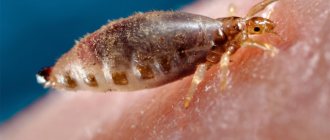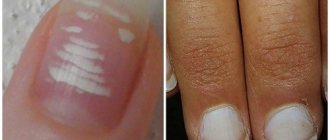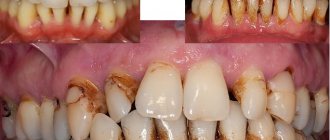Sweet taste
At first glance, it may seem that sweet taste is not dangerous because it can be pleasant. Our brain associates sweet taste with positive stimuli. However, don't be fooled because if you have a sweet taste in your mouth for no apparent reason, it could be a sign that your blood sugar levels are off, which is a recipe for diabetes.
This could be a metabolic malfunction or some kind of liver pathology, a violation of the taste buds due to stress or inflammation of the ternary nerve. Be sure to consult with your doctor, who will conduct a basic examination and refer you to specialists.
Health language: bad taste in mouth
Have you stopped enjoying food, as if something is preventing you from feeling its real taste? Unfortunately, this problem occurs frequently. Although an obsessive taste in the mouth is not always a sign of a serious illness, it cannot be ignored. The “extra” taste that haunts you may be the result of dental problems, metabolic disorders, or disorders of the stomach or liver.
Bitter taste in mouth
Bitterness in the mouth is a symptom of diseases of the gallbladder (cholecystitis) and bile ducts. This taste occurs when bile from the gallbladder, instead of entering the duodenum, enters the stomach, esophagus and then into the mouth.
Due to some infectious and inflammatory diseases (cholelithiasis, tumor processes, etc.), bile begins to stagnate both in the gallbladder itself and in the bile vessels. As a result of insufficient supply of bile to the gastrointestinal tract, food is digested poorly, intestinal motility is disrupted, and various congestion occurs in the digestive canal.
The cause of bitterness in the oral cavity can also be disturbances in the peristaltic movements of the intestinal canal themselves, even with normal functioning of the liver and biliary system. The speed of food passage through the digestive canal simply decreases, and along with it, digestive juices, including bile, are retained in the intestines.
Bitterness in the mouth may be one of the signs of liver disease. Of course, the appearance of a bitter taste in the mouth does not necessarily mean serious problems, but bitterness clearly indicates that your liver is already working at its limit and needs to be cleansed. Cleansing the liver is ridding it of various toxins that have accumulated in the process of neutralizing toxic elements that enter the body. It is better to discuss cleaning options with a competent specialist.
Foods that have a powerful choleretic effect, for example, pine nuts (and almost all types of nuts, although to a lesser extent), can contribute to the appearance of a bitter taste in the mouth. Therefore, it is worth limiting the consumption of these products, and for prevention, sharply reduce heavy foods: fatty, spicy, smoked and fried. In addition, train your body to eat at least two hours before going to bed, because at night the digestion process slows down sharply, which contributes to food stagnation.
If the bitterness in the mouth does not disappear for a long time, you should urgently consult a doctor. Your liver or gallbladder may need professional medical attention.
Sweet taste in mouth
This is the first sign of a carbohydrate metabolism disorder, which is a consequence of excessive consumption of sweets or chronic stress.
Contrary to popular belief, a sweet taste in the mouth is not a characteristic symptom of diabetes, but diabetes can be a result of it. And it is not necessarily present in people with a sweet tooth; a sweet taste can also be found in people who absolutely do not eat sweet foods.
If the sweet taste persists for a long time, you should visit an endocrinologist and determine your blood sugar level (on an empty stomach). If it turns out to be normal, consult a gastroenterologist. Diseases of the gastrointestinal tract are possible (for example, bile has refluxed into the stomach), liver function is disrupted, or changes have occurred in the activity of the pancreas.
A cloying taste can also be a sign of phosgene or pesticide poisoning. This taste can also be a sign of dental problems. In any case, you should not ignore this symptom - it can result in diabetes.
Salty taste in mouth
It is often a symptom of an infectious disease of the salivary gland or kidney pathology.
In general, the taste in the mouth depends on saliva, which is produced by the salivary glands located in the mouth: saliva of different chemical composition causes different tastes. The secretion of salty saliva can be caused by an infection of the salivary glands as a result of diseases such as Sjögren's syndrome or sialadenitis.
The salty taste also appears because mucus from the nasopharynx enters the oral cavity (with sinusitis or sinusitis).
A salty taste may be caused by medications prescribed to treat bacterial infections. In this case, you should contact your doctor with a request to prescribe an alternative medicine so as not to add to one problem another.
Chronic dehydration, which can be caused by insufficient fluid intake or excessive consumption of caffeinated drinks and alcohol, also contributes to the production of salty-tasting saliva.
Sour taste in mouth
Such a symptom, provided that all the teeth in your mouth are healthy and there are no crowns made of base metal, can accompany a number of diseases of the gastrointestinal tract.
For example, with stomach ulcers and gastritis, acid from the stomach enters the esophagus and then into the oral cavity. If the sour taste in the mouth is often disturbing and is accompanied by other unpleasant phenomena - heaviness in the stomach, pain in the pancreas, nausea, belching, etc., this phenomenon may indicate increased acidity of gastric juice. You should undergo a gastroscopy, determine the acidity level, and also examine the pancreas.
The same taste can occur with diseases of the gums and teeth, for example, periodontitis, and can also be a consequence of the use of certain medications.
Hydrogen sulfide taste
An unpleasant taste such as the taste of a rotten egg suggests that you have gastritis or an ulcer in your stomach caused by Helicobacter, which can be detected by probing.
This can also be a signal of stagnation of food in the stomach, as a result of which the process of microbial fermentation and rotting of food masses under the influence of intestinal microflora intensifies. It may also be due to a narrowing of the outlet of the stomach, which is observed during the formation of post-ulcer scars and tumors.
Therefore, in isolated cases, you can take an enzyme tablet to improve the digestion process, but in case of repeated signals, you cannot do without a doctor. And the sooner you meet him, the better.
A plastic taste in the mouth may mean that crowns or fillings have expired and are time to be replaced.
A metallic taste in the mouth can occur due to metal crowns. The same taste occurs after poisoning with arsenic, mercury and other metals (you may have inhaled toxic fumes).
In any case, remember that only a doctor can make an accurate diagnosis and only after his recommendations can you begin appropriate treatment.
Be healthy!
Elena Rodnina
Metallic taste
This taste is very unpleasant and appears for several reasons.
One of the reasons is low-quality metal in the form of a crown or dentures in the mouth. Apparently there is some kind of incompatibility or allergy to various substances released by the metal.
A metallic taste can also be caused by taking certain pills, such as antibiotics or thyroid medications, smoking, hormonal changes, periodontitis, gingivitis, anemia, or other similar problems. As well as poisoning with heavy metals such as mercury or lead. Here you definitely need to see a doctor so as not to harm yourself.
Bitter taste
Some people like bitter taste in food. However, if a bitter taste occurs in the mouth on its own, this may indicate problems with the liver and its functions, which should not be underestimated.
Before you see a doctor, you can try to eliminate this unpleasant phenomenon yourself by paying close attention to your drinking regimen and giving up carbonated drinks.
Adjust your diet, especially by reducing your intake of salt and heavy foods as much as possible. Eat more fruits and vegetables than usual and minimize alcohol consumption.
From all that has been said, we can draw the following conclusion : you need to pay attention to the symptoms of taste that do not go away even after the measures taken. Take care of yourself, take care of your hygiene, consult a doctor on time and be healthy!
Taste disturbances - possible medical causes of taste disturbances
Taste disturbance is a fairly common phenomenon, which not only brings various problems to the patient in everyday life, but can also be a sign of a serious illness. There are several types of taste disturbances:
• Ageusia is a complete loss of taste. • Hypogeusia – partial loss of taste. • Dysgeusia is a perversion of taste.
The sensory receptors that are responsible for the perception of taste are concentrated on the surface of the tongue and are also scattered throughout the palate, pharynx and pharynx. Taste buds transmit signals to the brain, which perceives them as “taste.” These receptors are able to distinguish sweet, bitter, sour and salty tastes of food. More complex taste sensations arise from the interaction of many receptors simultaneously.
When a disease, injury, or other factor interrupts the signal from the taste buds to the brain, problems with taste perception occur. Such factors include deficiency of vitamins and minerals, neurological disorders, oral diseases, and the effects of certain medications.
The main non-pathological causes include smoking, which dries out the tongue, as well as aging, which gradually reduces the number of taste buds. Since flavors are best experienced in a liquid medium, a dry mouth can interfere with their perception.
Possible causes of taste disturbance:
1. Fracture of the base of the skull.
If the first cranial nerve is damaged due to injury, the patient usually cannot distinguish complex tastes, but is able to distinguish salty, sour, bitter and sweet (simple tastes). Other signs include nosebleeds, rhinorrhea, headache, nausea, blurred vision and decreased level of consciousness. 2. Facial nerve paralysis.
This disease is characterized by loss of taste in the front of the tongue and weakness or paralysis of the muscles on one side of the face. On the affected side, the face looks like a mask. Other signs: drooling, lacrimation, absence or weakening of the corneal reflex, difficulty blinking.
3. Common cold.
Loss of taste in colds is usually accompanied by loss of smell, rhinorrhea, nasal congestion, sore throat, weakness, chills, fever, body aches and dry cough. With ARVI and influenza, hypogeusia or dysgeusia may be observed.
4. Geographical language.
Taste disturbances often accompany inflammation of the tongue papillae. In this case, the tongue becomes covered with spots of different shapes, resembling a geographical map.
5. Oral cancer.
About half of all oral tumors affect the tongue, especially the back and lateral edges. Cancer can destroy taste buds, leading to impaired taste. Other signs: difficulty chewing and speaking, bad breath.
6. Sjögren's syndrome.
This is a genetic, autosomal recessive disease in which the functioning of the salivary, lacrimal and other glands is disrupted. Lack of saliva leads to extremely dry mouth, loss of taste and frequent oral infections. Dryness and pain in the eyes, dry cough, hoarseness, nosebleeds, dry skin, insufficient sweat production, polyuria, etc. are also characteristic. Patients have ulcers on the cornea, dry crusts in the nose, sore throat, enlarged lacrimal and salivary glands.
7. Thalamic syndrome.
This syndrome, caused by damage to the thalamus, can cause distorted taste perception. Before this, patients may experience loss of deep and superficial skin sensitivity, partial paralysis and hemianopia (loss of half the normal field of vision). Later, the patient may regain sensation and may even experience increased sensitivity to pain.
8. Thrush (candidiasis).
Whitish or creamy spots on the tongue or palate may indicate a fungal infection of the mouth - candidiasis. This disease disrupts the perception of taste, causes pain and a burning sensation.
9. Acute viral hepatitis.
In viral hepatitis, hypogeusia may precede the appearance of jaundice. Associated symptoms include impaired sense of smell, loss of appetite, nausea and vomiting, weakness, malaise, headache, photophobia, sore throat and cough. Patients may also experience muscle and joint pain.
10. Vitamin B12 deficiency.
In this condition, hypogeusia is accompanied by impaired sense of smell, anorexia, weight loss, abdominal discomfort and glossitis (inflammation of the tongue). In severe cases, the patient may experience yellowing of the skin, peripheral neuropathy, shortness of breath, gait disturbance and dementia.
11. Zinc deficiency.
Deficiency of this mineral is common in patients with hypogeusia, suggesting an important role for zinc in taste perception. With zinc deficiency, a distortion of the sense of smell may occur - the most unpleasant things may seem fragrant to the patient. Other signs of zinc deficiency include brittle nails, thinning hair, and enlarged liver and spleen.
12. Medicines.
Such medicinal substances can disrupt the perception of taste: penicillamine, captopril, griseofulvin, rifampicin, lithium preparations, procarbazine, vincristine, vinblastine, antithyroid drugs and others. In fact, there are hundreds of such drugs, so sometimes the easiest way to find out the cause of dysgeusia is to re-read the instructions on your medications.
13. Radiation therapy for cancer.
Irradiation of the head and neck can cause dry mouth, which affects the perception of tastes.
If a taste disorder is observed in a small child, then you need to remember an important point. Often it is not possible to distinguish a real taste disorder in a child from the child’s ordinary reluctance to eat this or that product.
Konstantin Mokanov: Master of Pharmacy and professional medical translator










